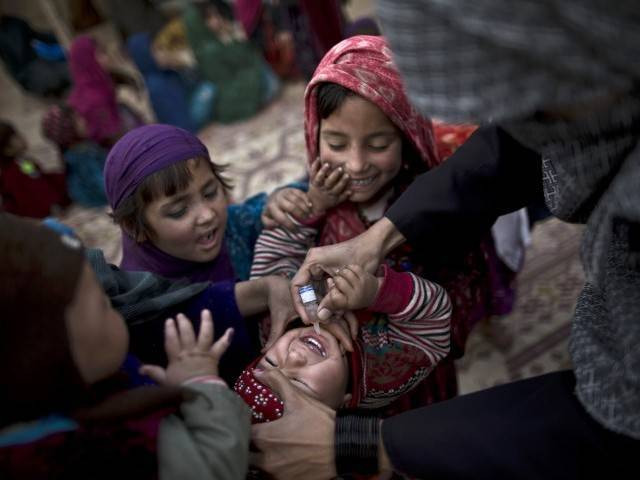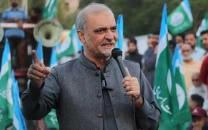K-P rolls out ambitious immunisation drive
Gandapur says province will achieve 90% coverage by 2027

In a significant step towards improving child health outcomes, Khyber-Pakhtunkhwa has launched a province-wide Immunization Action Plan (IAP) aimed at achieving 90 per cent Full Immunization Coverage (FIC) for children by 2027.
The initiative, targeting 12 vaccine-preventable diseases, reflects a renewed government commitment to tackling public health challenges, particularly in underserved and high-risk areas.
The action plan was formally inaugurated by Chief Minister Ali Amin Khan Gandapur at the Chief Minister's Secretariat in Peshawar.
Addressing the gathering, the CM emphasized that the immunization drive goes beyond routine health programming and is a critical part of the provincial government's broader public health and governance agenda.
He stressed that the real challenge lies not in the formulation of the plan but in its effective implementation across all districts. "This is not just a plan on paperit is a pledge. The time for action is now, and the responsibility lies with every department, every official, and every frontline health worker," he said.
Underscoring the urgency of the mission, the chief minister pointed out that Rs8 billion have been earmarked in the current budget to support the immunization initiative. He also acknowledged the continued support of development partners, stating that their collaboration remains vital in overcoming operational hurdles and reaching every child, regardless of location. "Together, we will rid this province of polio and all vaccine-preventable diseases," he declared.
Chief Secretary Shahab Ali Shah shed light on the challenges the province faces, noting that K-P currently has the lowest immunization coverage in the country, with only 55 per cent of children fully immunized. He identified the southern districts as areas of concern due to both access and acceptance issues but insisted that improved institutional capacity, resources, and coordination mechanisms now provide a real opportunity for change.
According to a detailed presentation during the event, the IAP seeks to vaccinate approximately 1.42 million children under the age of two annually. It outlines an eight-point strategy focusing on outreach to underserved communities, especially those in security-compromised or geographically remote areas. One of the major reforms under the plan is a substantial increase in transportation funding, rising from Rs80 million to Rs448 million over three years, to ensure that field teams can access even the most distant communities.























COMMENTS
Comments are moderated and generally will be posted if they are on-topic and not abusive.
For more information, please see our Comments FAQ